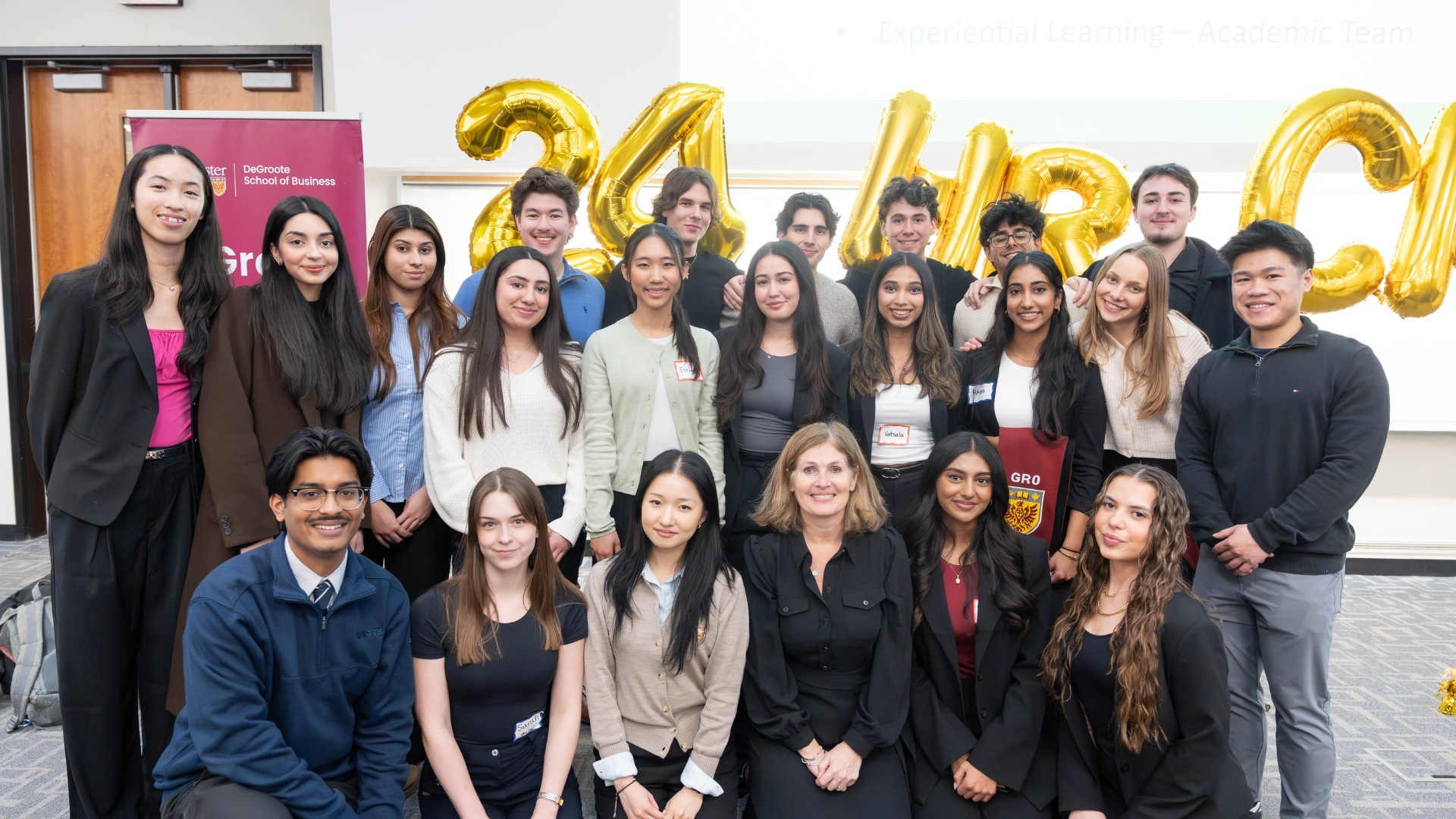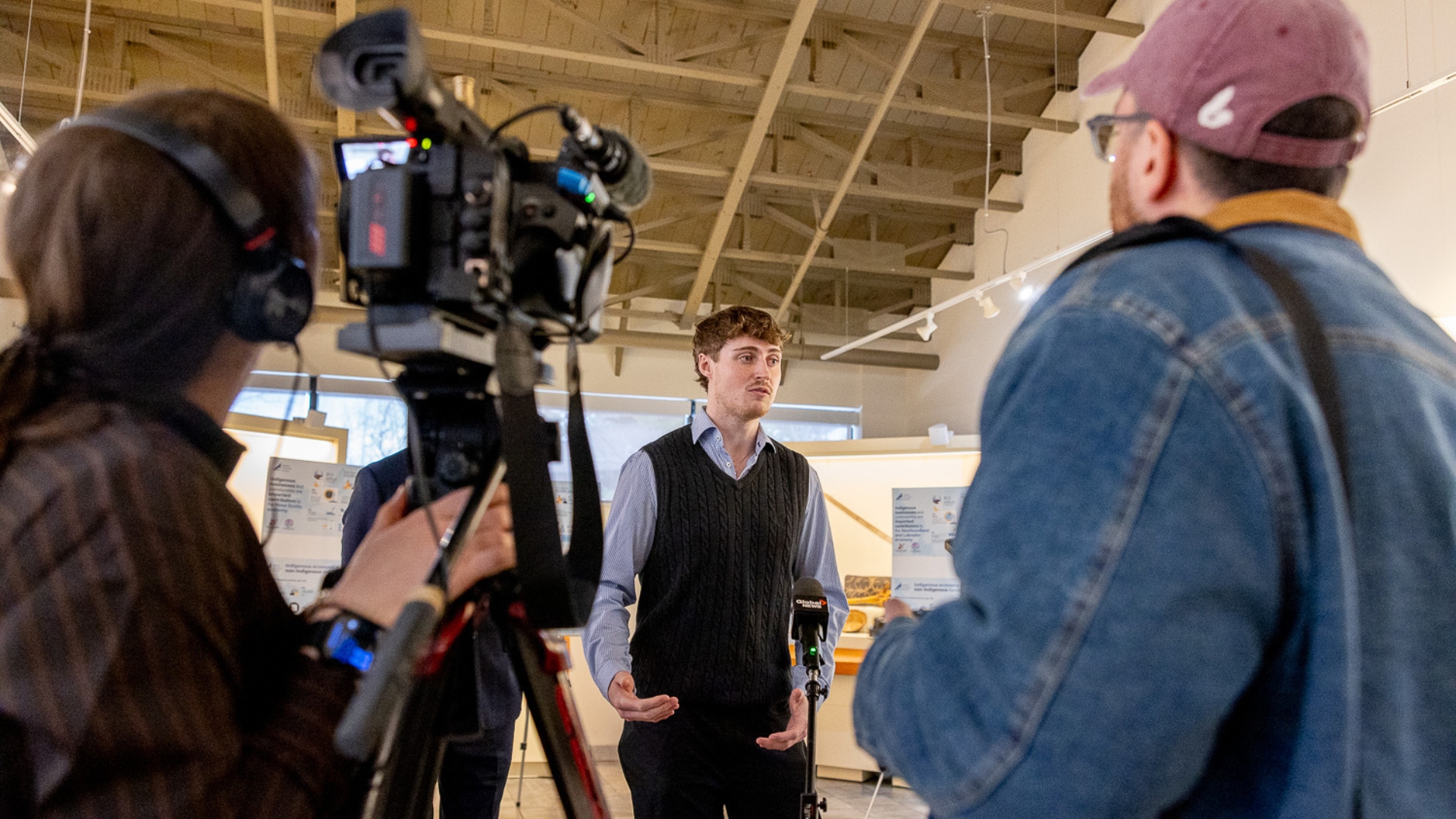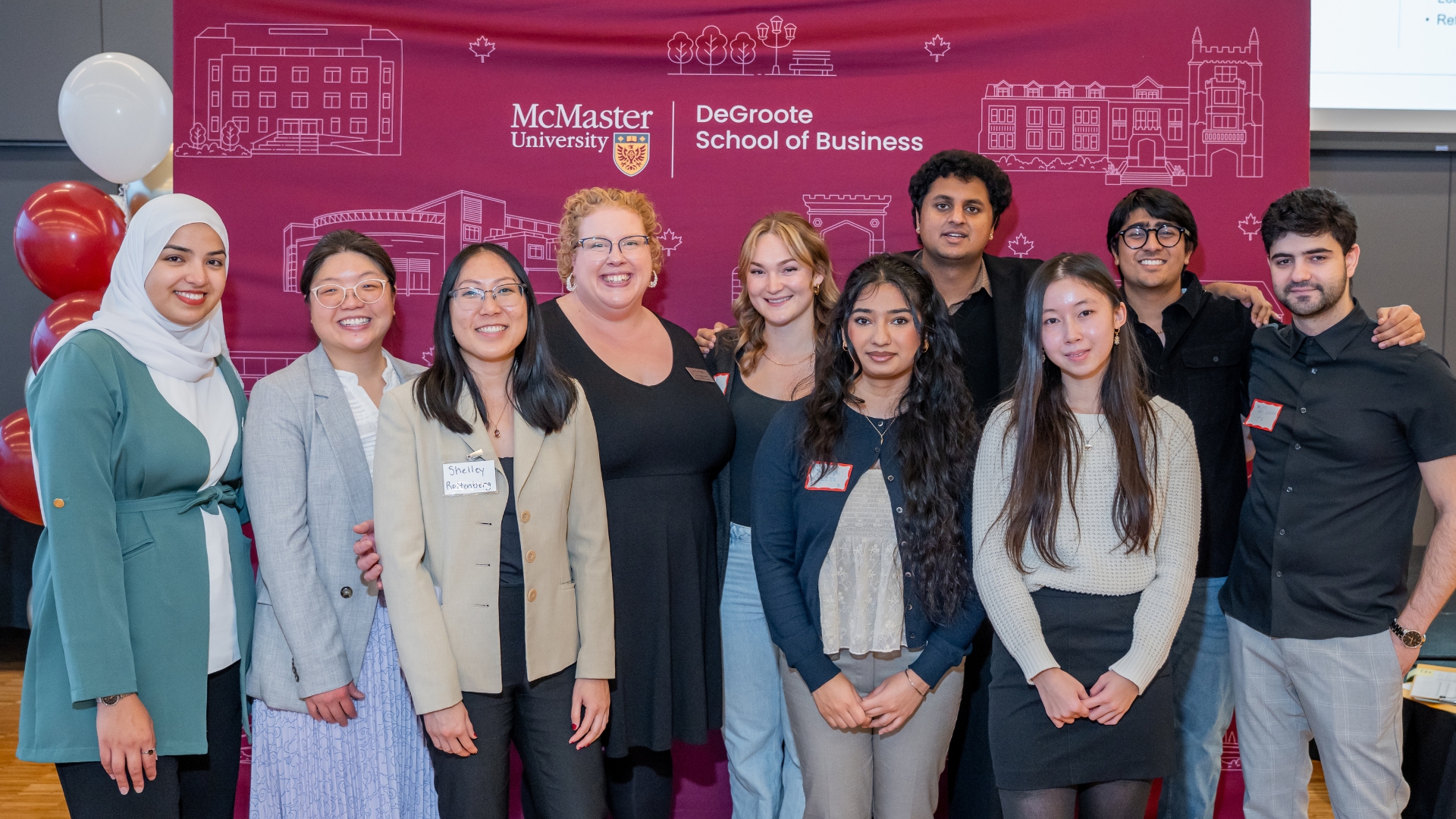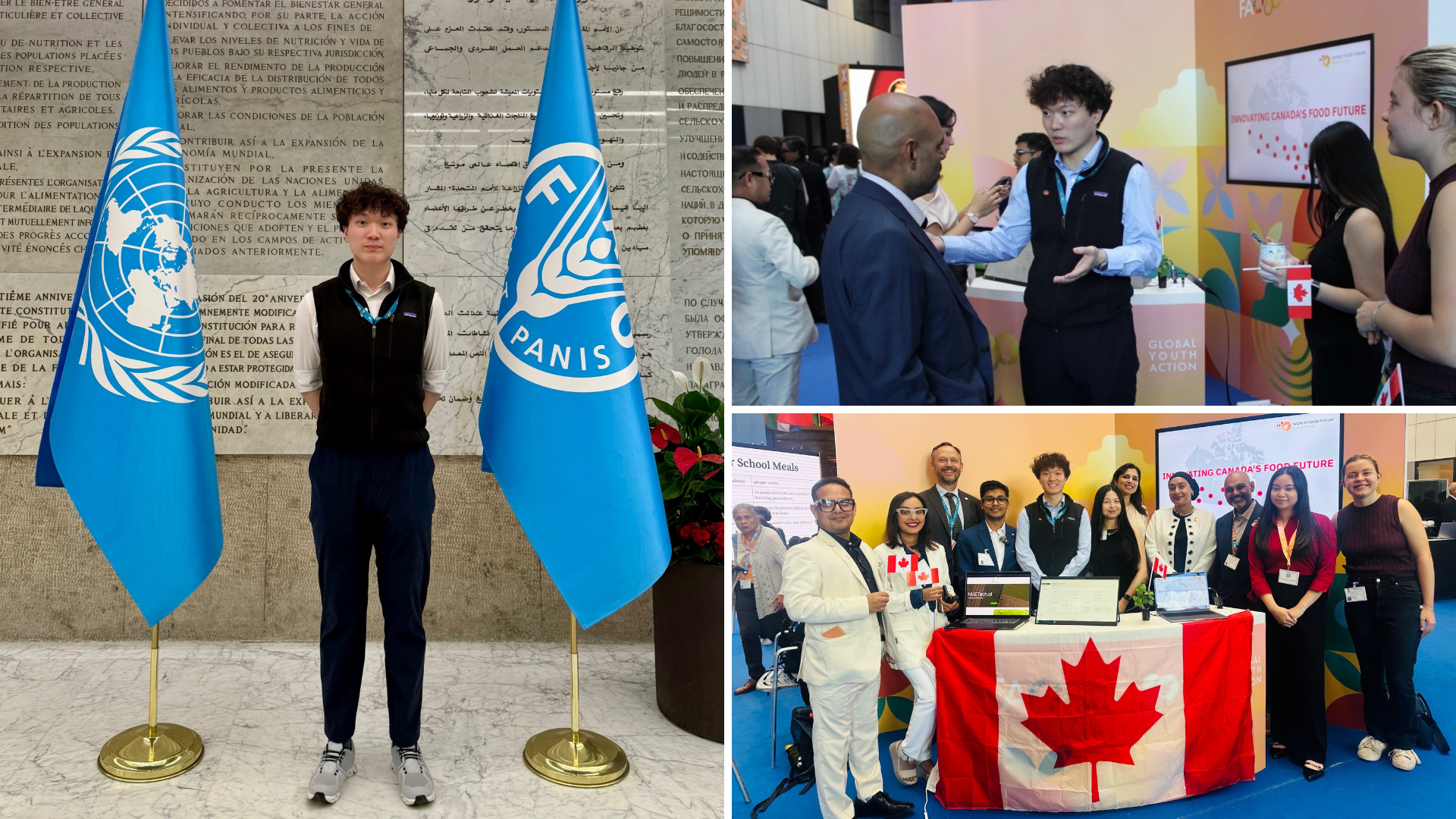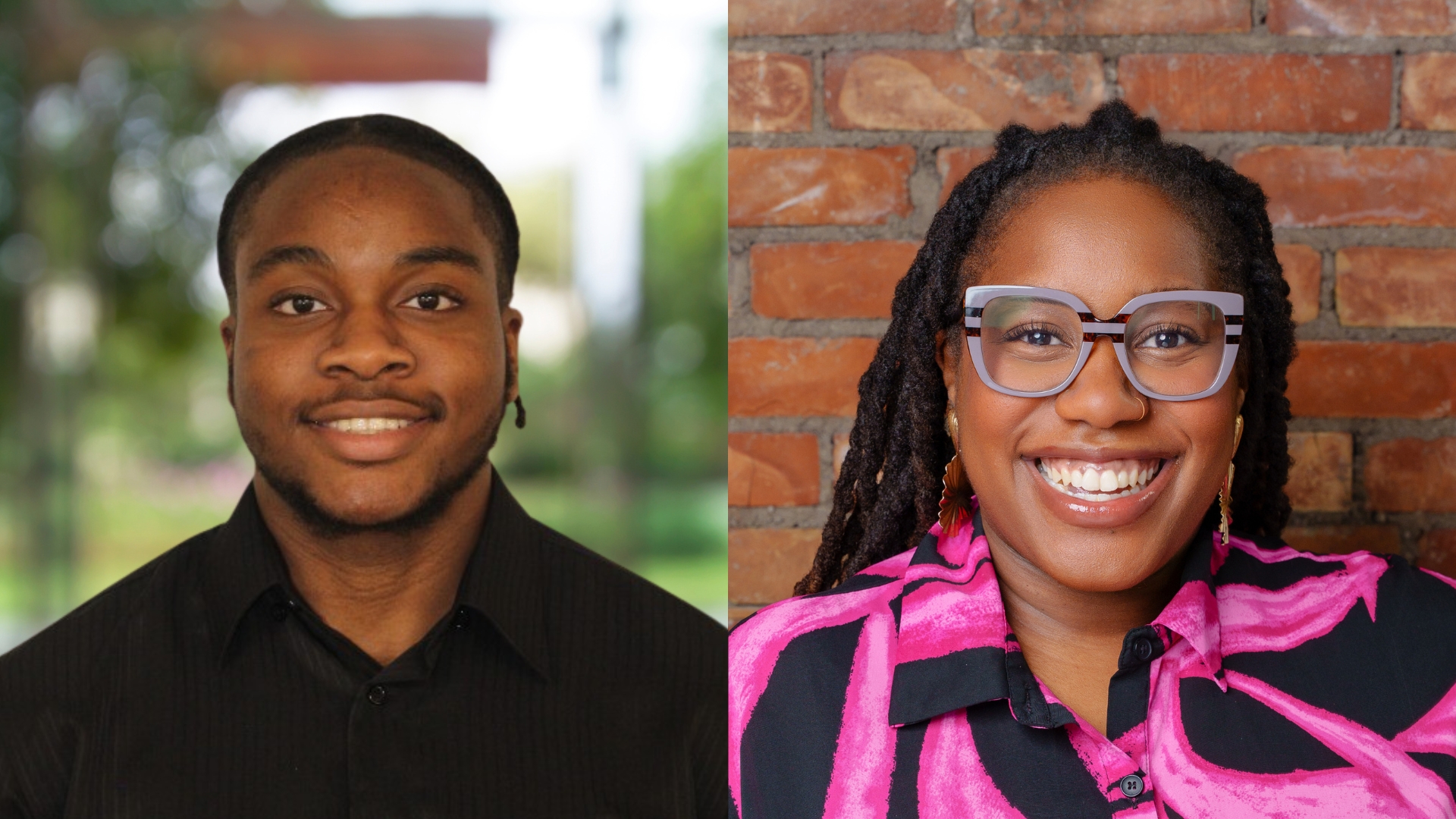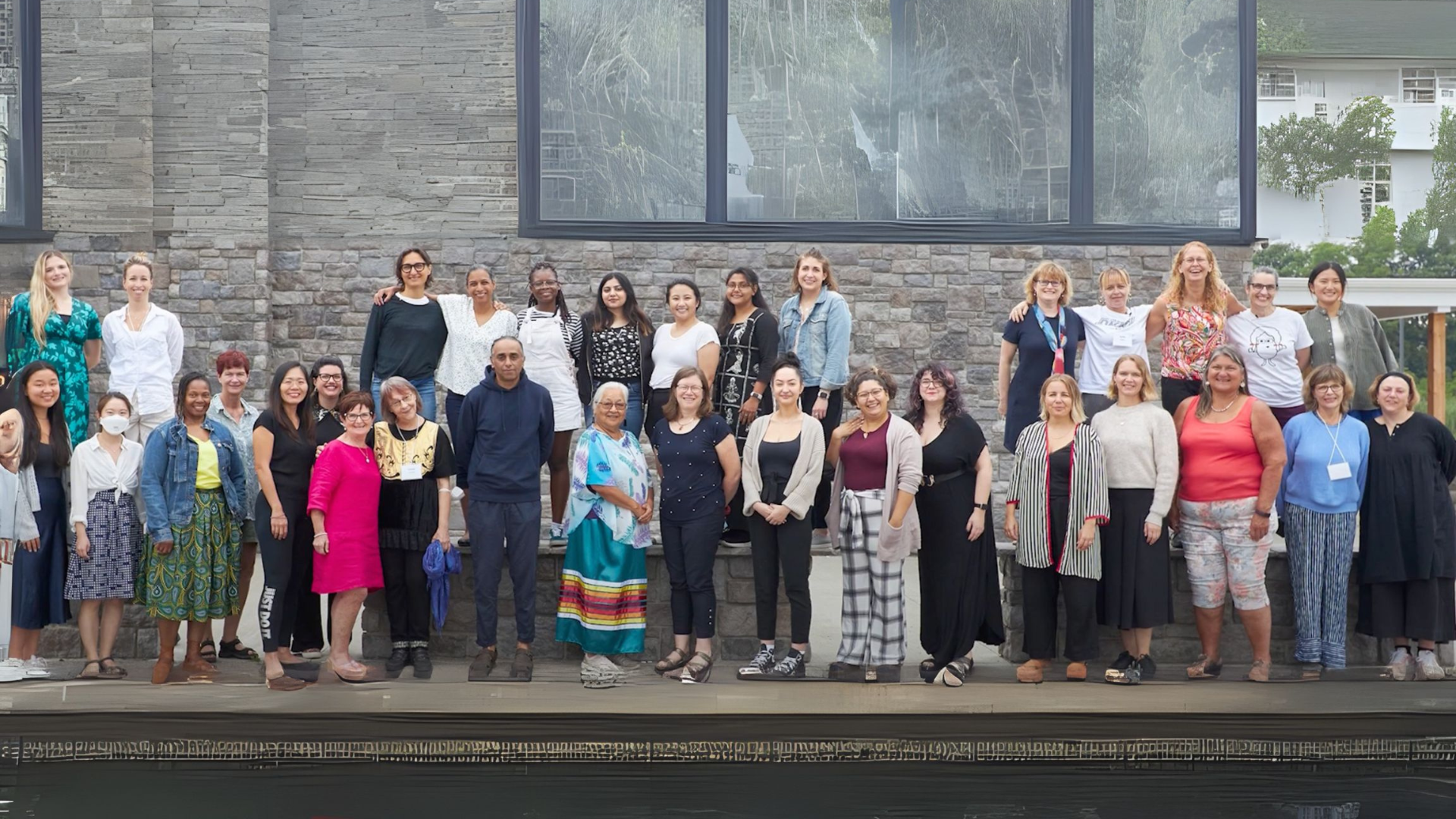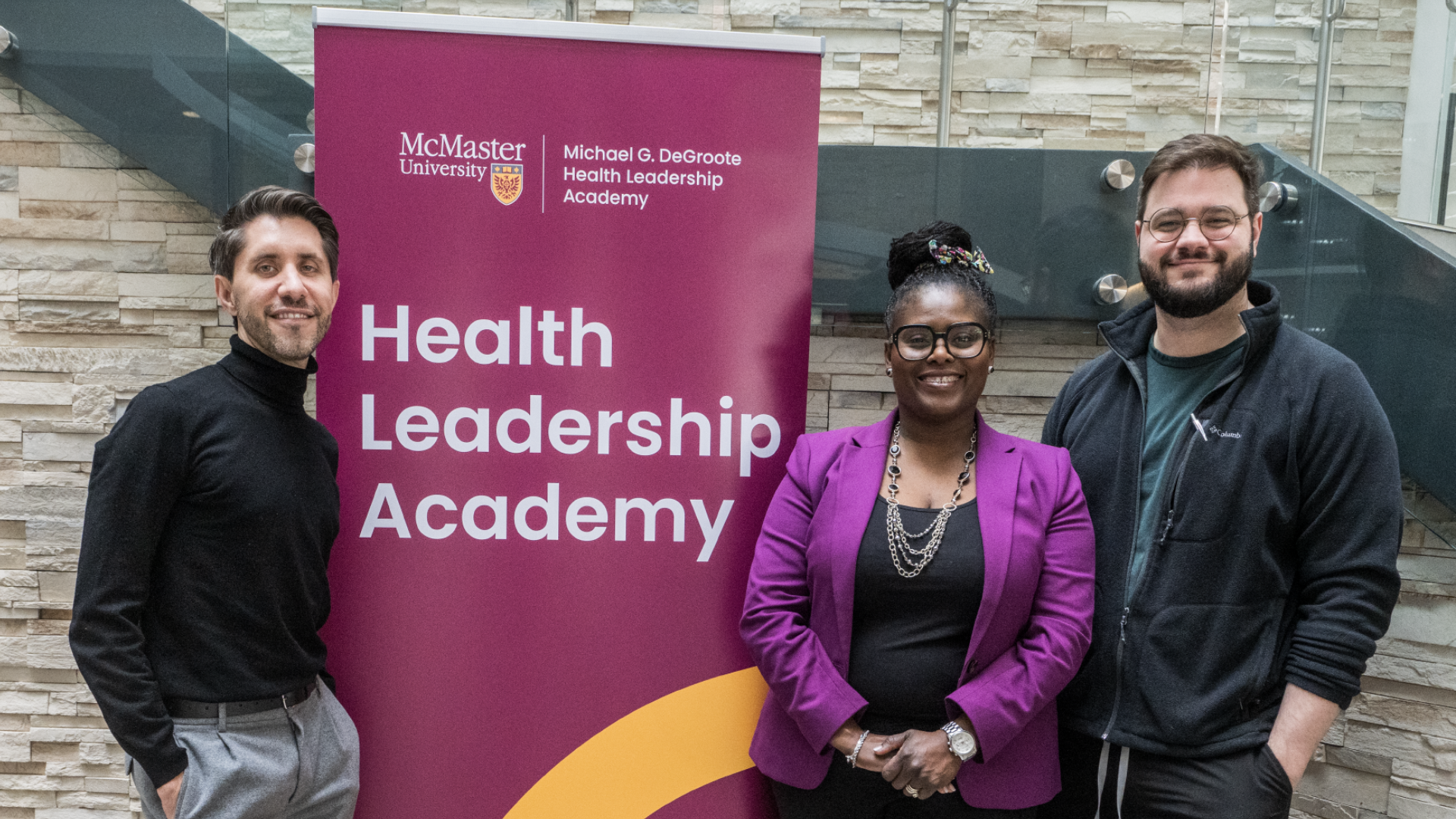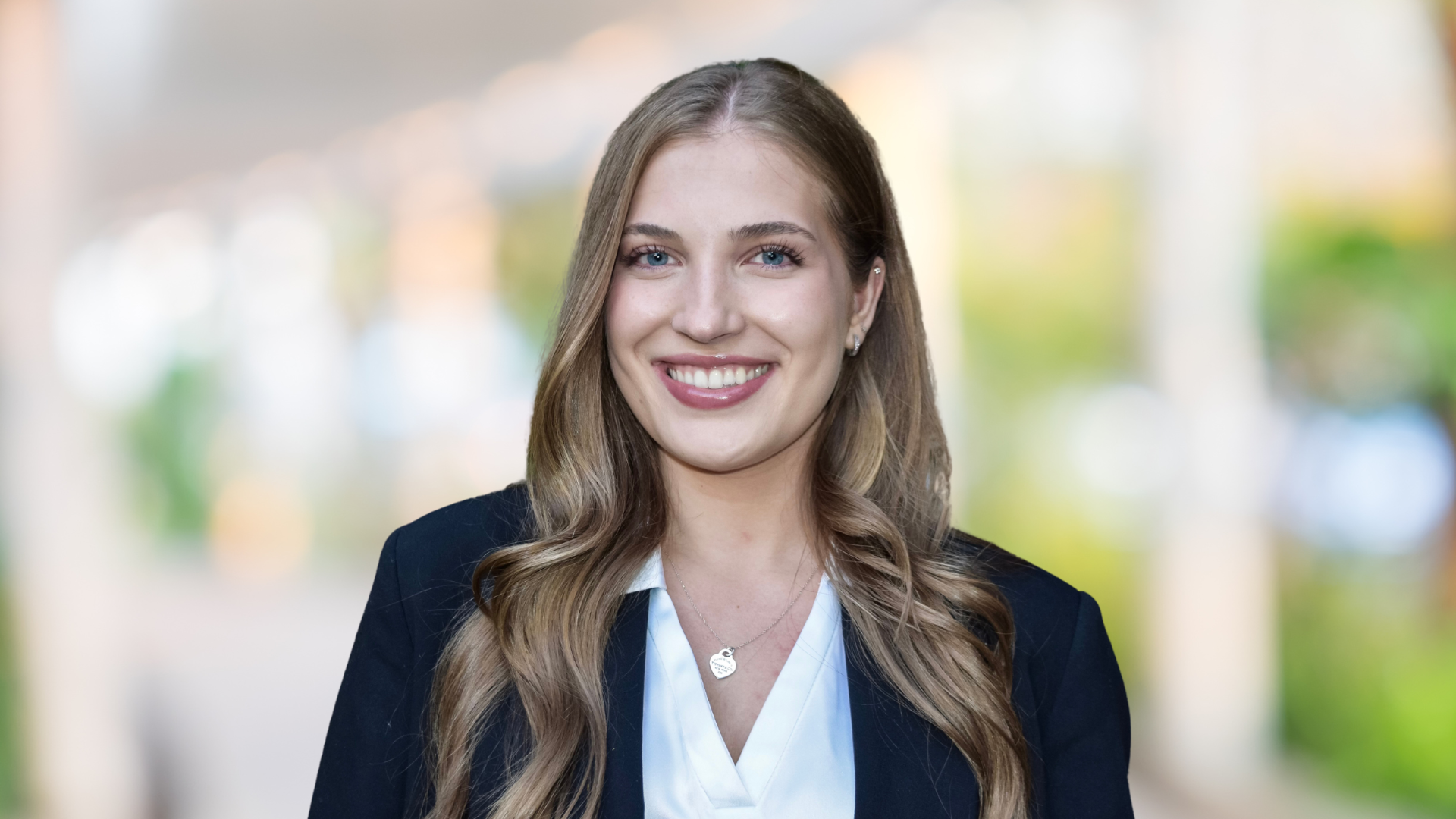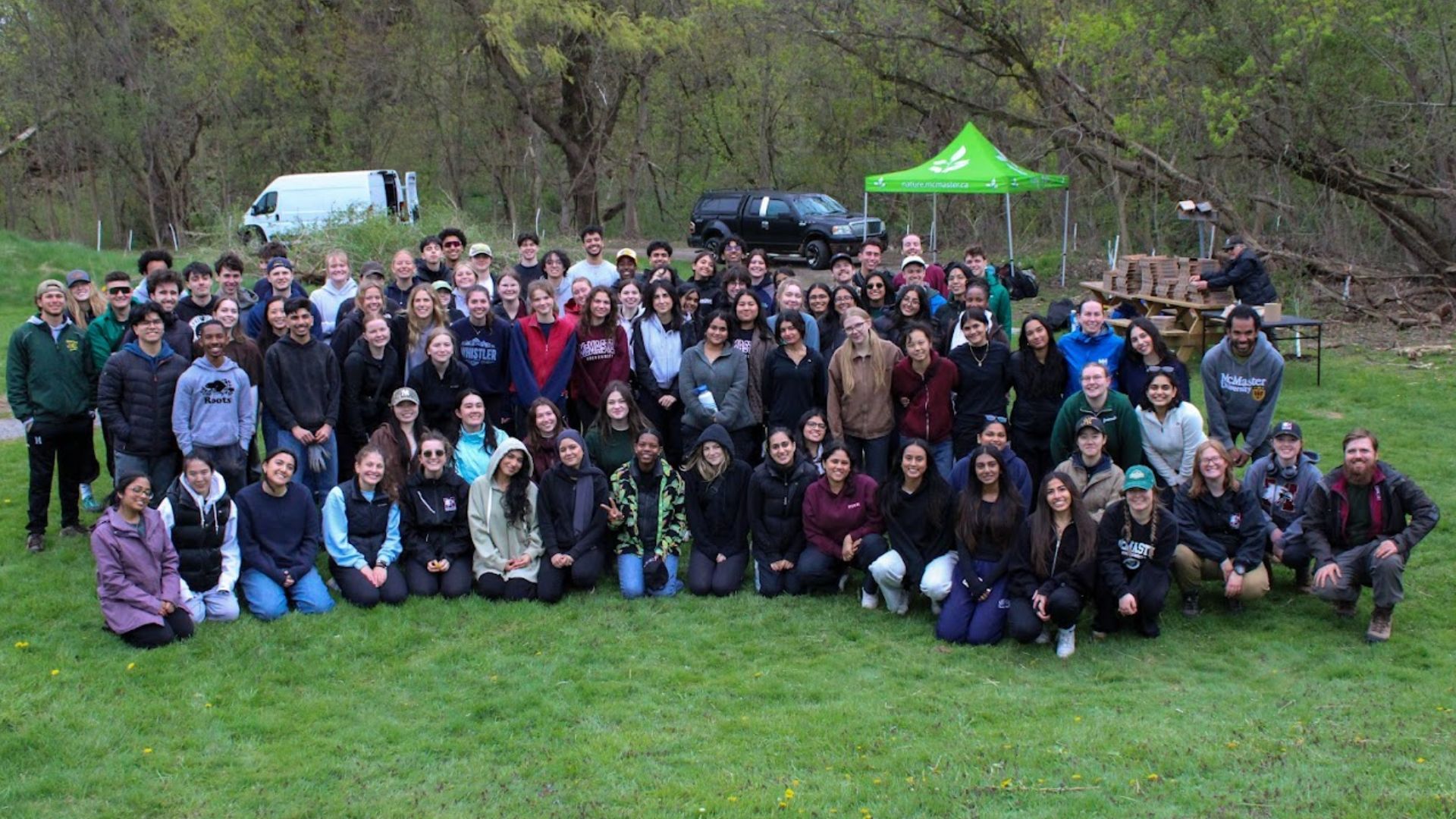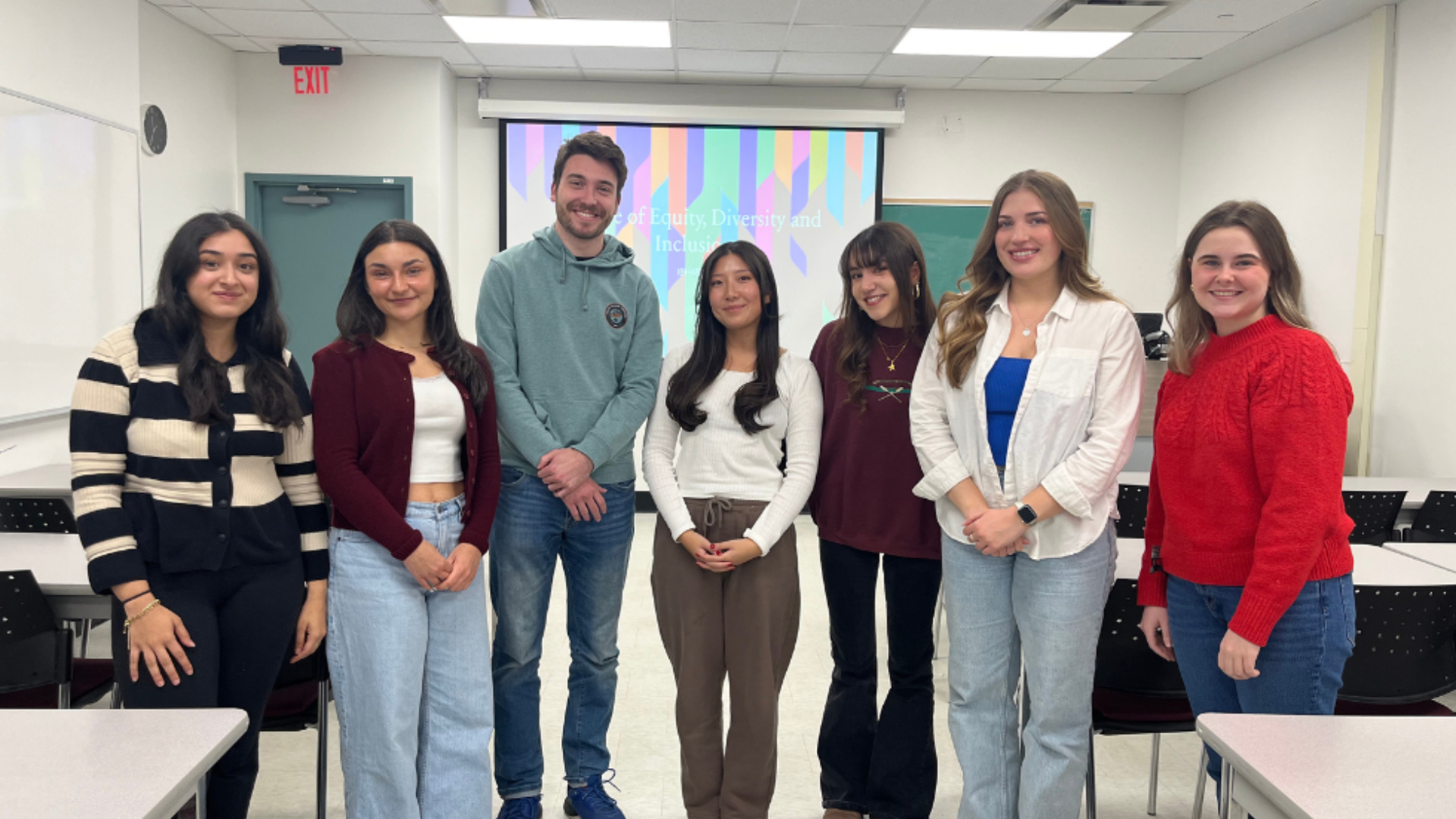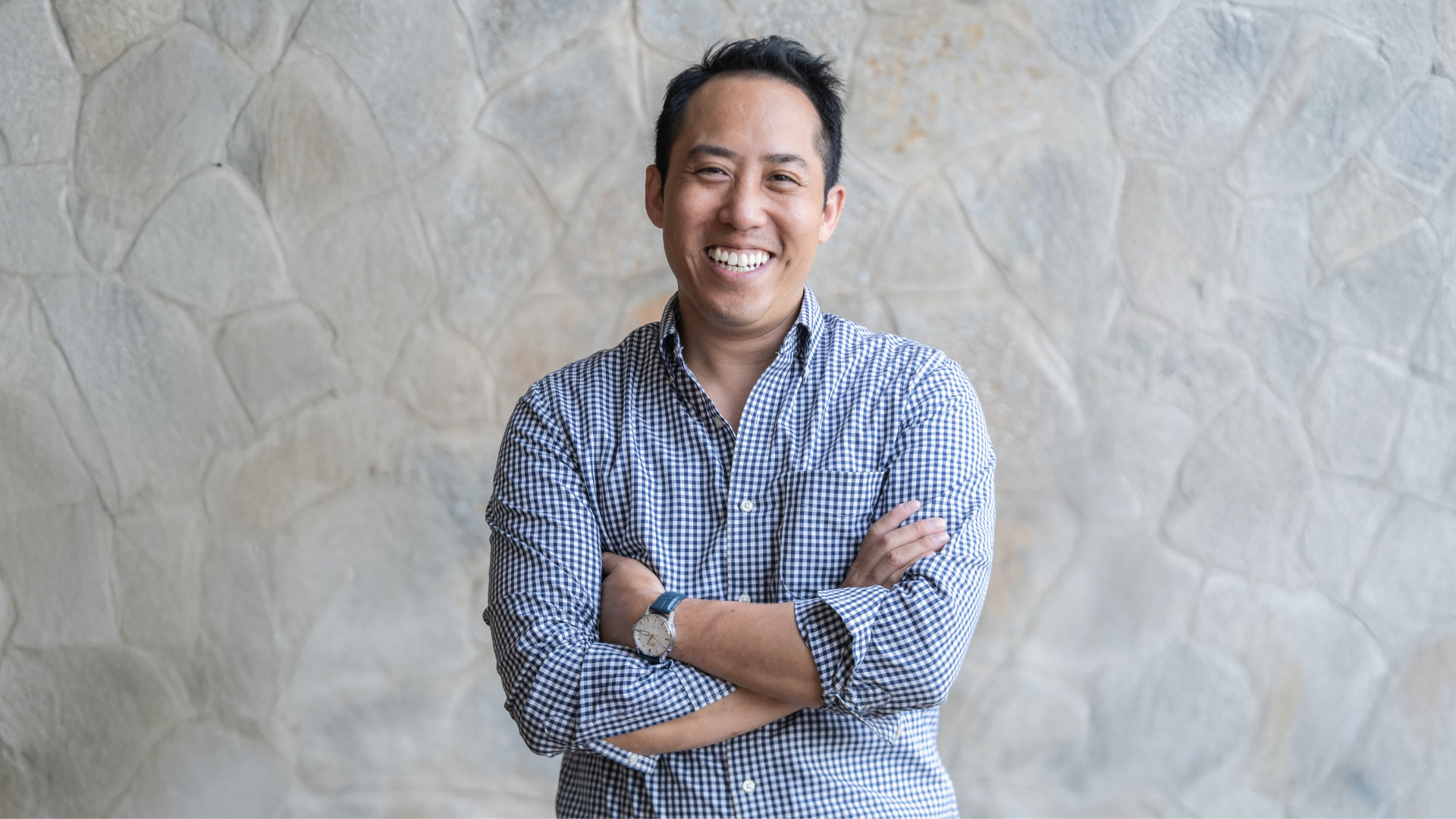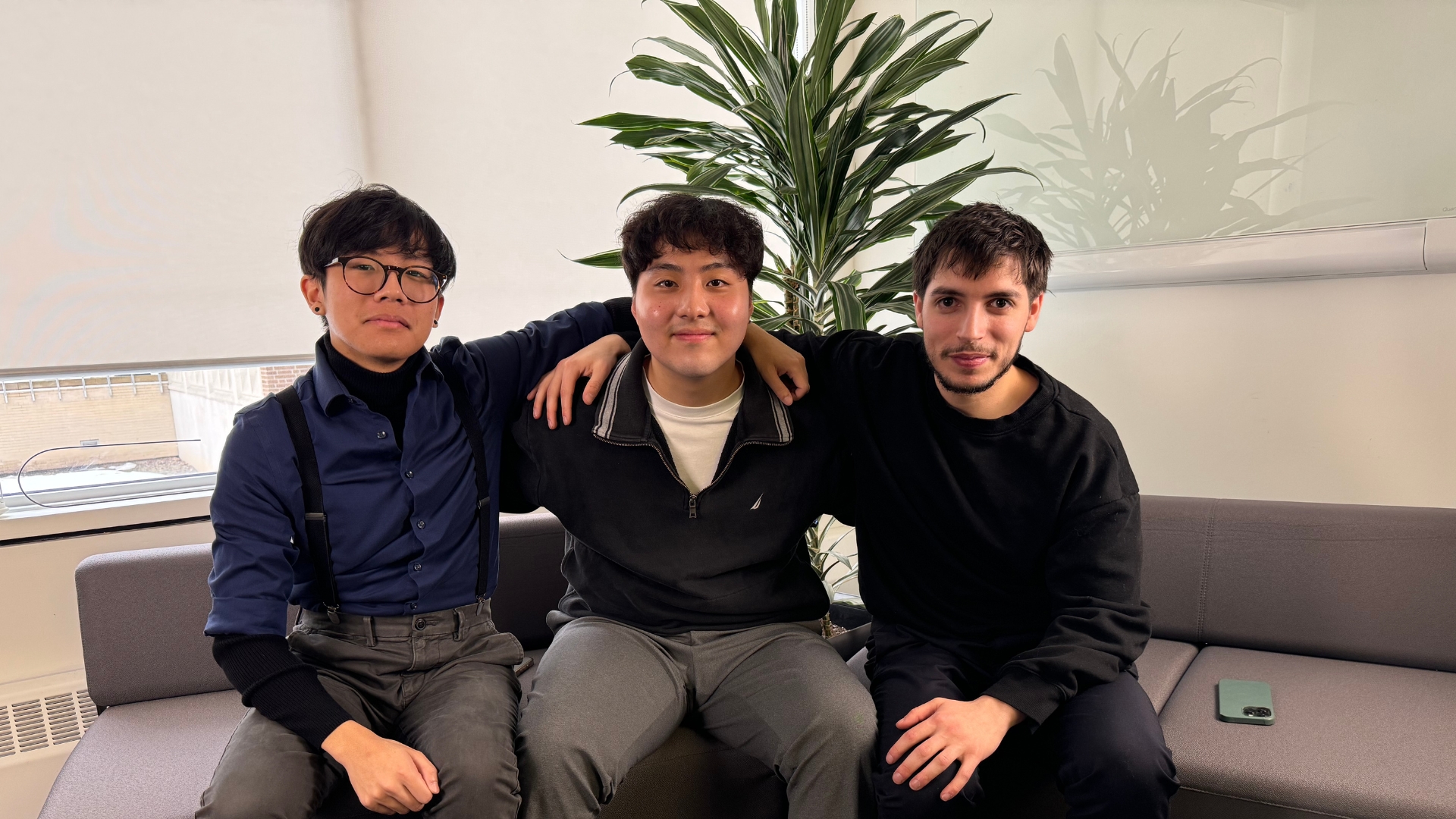ALUMNI STAFF STRATEGIC PLAN | ENGAGING COMMUNITIES
The Legacy of Learning to Give Back
July 4, 2024 ·
Contributed by: Izabela Shubair, DeGroote Contributor
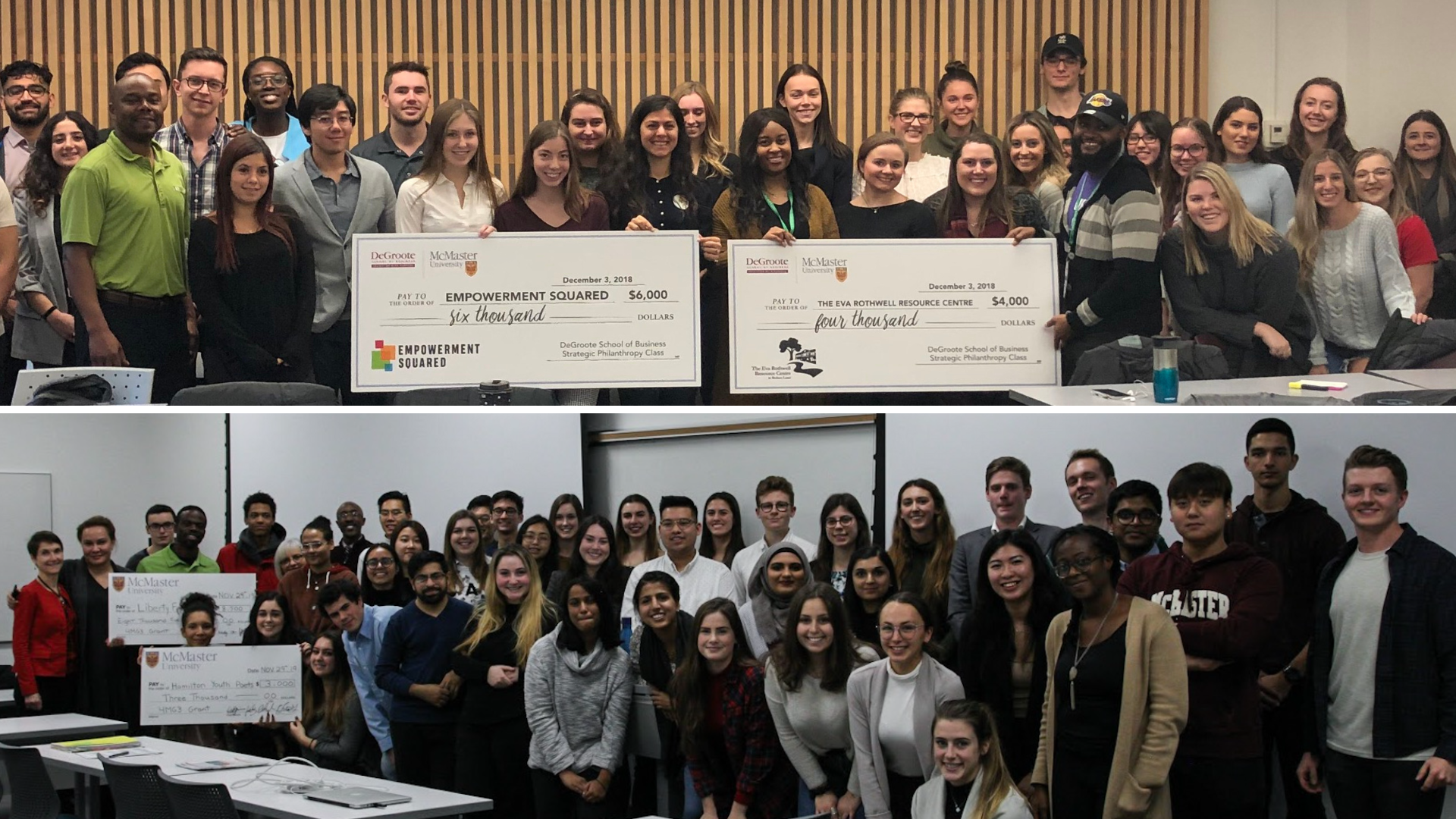
Hamilton Sustainable Victory Gardens Inc. The Settlement and Integration Services Organization. THRIVE Child and Youth Trauma Services. De Dwa Da Dehs Nyes Aboriginal Health Centre. Food4Kids. At first glance, these charitable organizations appear unrelated. They, however, share a unique commonality. Over 12 years, they were among 23 organizations that DeGroote and McMaster students thoughtfully and strategically chose to receive more than $143,000 through 36 grants.
This community impact wasn’t a result of traditional fundraising efforts. It was the core of the Strategic Philanthropy and Leadership course, which took a hands-on approach to educating students about Canada’s philanthropic sector. While the financial resources to sustain the course are no longer available, its influence continues to shape the community. Strategic Philanthropy and Leadership also left an indelible impression on the instructors who guided it and the students who honed their leadership skills for social, economic and environmental change through meaningful community involvement.
“It cemented my understanding of the power of funds to make a tangible difference in the lives of others,” says Jhanvi Mahajan (BCom ’21), who took the course during her time at DeGroote. “I learned that so long as we can lead efforts by prioritizing respect for diversity, amplifying marginalized voices, challenging long-standing beliefs, and bolstering our demands for change without the fear that it will not come, we will be alright.”“This course went beyond philanthropy; it touched the heart of what it means to be human.”
Teaching Students How to Create Impact Strategically
With over 85,000 charities and more than 2,300 active grant-making foundations across Canada, which collectively manage some $73 billion in assets and approximately $6 billion in grants annually, philanthropy and the volunteer sector are integral parts of civil society. Strategic Philanthropy and Leadership delved into philanthropy’s history, influence and privilege to explore the country’s philanthropic and non-profit sectors.
Kate Siklosi was a course instructor. She says that ensuring the topics were covered comprehensively meant shedding light on the challenges and prospects community and non-profit organizations face. The syllabus emphasized diversity and amplifying marginalized voices.
“We wanted to get the students thinking critically about what it means to give money, what the power of giving money entails and how to use that kind of power and privilege responsibly,” Siklosi says.
The focal point of Strategic Philanthropy and Leadership was a group assignment, which brought the teachings to life. It engaged students in the hands-on process of identifying, comparing, and deciding upon grants from a $10,000 fund to eligible Greater Hamilton Area charities selected as a class.
This assignment was seeded by a gift from the Learning by Giving Foundation, a philanthropic organization initiated by Doris Buffet, Warren Buffet’s sister. After Doris met the course founder, Maria Antonakos, at a conference, McMaster became the only Canadian post-secondary institution to grant Learning by Giving Foundation funds.
With these funds, students issued grants to charities in the community, after spending the term applying a model to assess and compare non-profits for selection based on their values, alignment and desired impact.
Another Strategic Philanthropy and Leadership instructor, Lynn Fergusson, who has facilitated the course since 2013, says the real-world experiential learning opportunity allowed students to become deeply invested in the course content.
“It was a rare opportunity to give money back to the community while we, the students and the instructors, benefited from the non-profits participating in the learning that happened in the process,” Fergusson says.
Adds Siklosi, “The students were very engaged because the stakes were high. They knew the funds meant a lot to the organizations that they served. Every year, we would have the organizations that students worked with give a presentation about their work and what the funding means to them.” “It was a point of pride for students to know they had the ability to make that type of impact. I’ve even heard of students wanting to shift their career goals to non-profit work because of this course.”
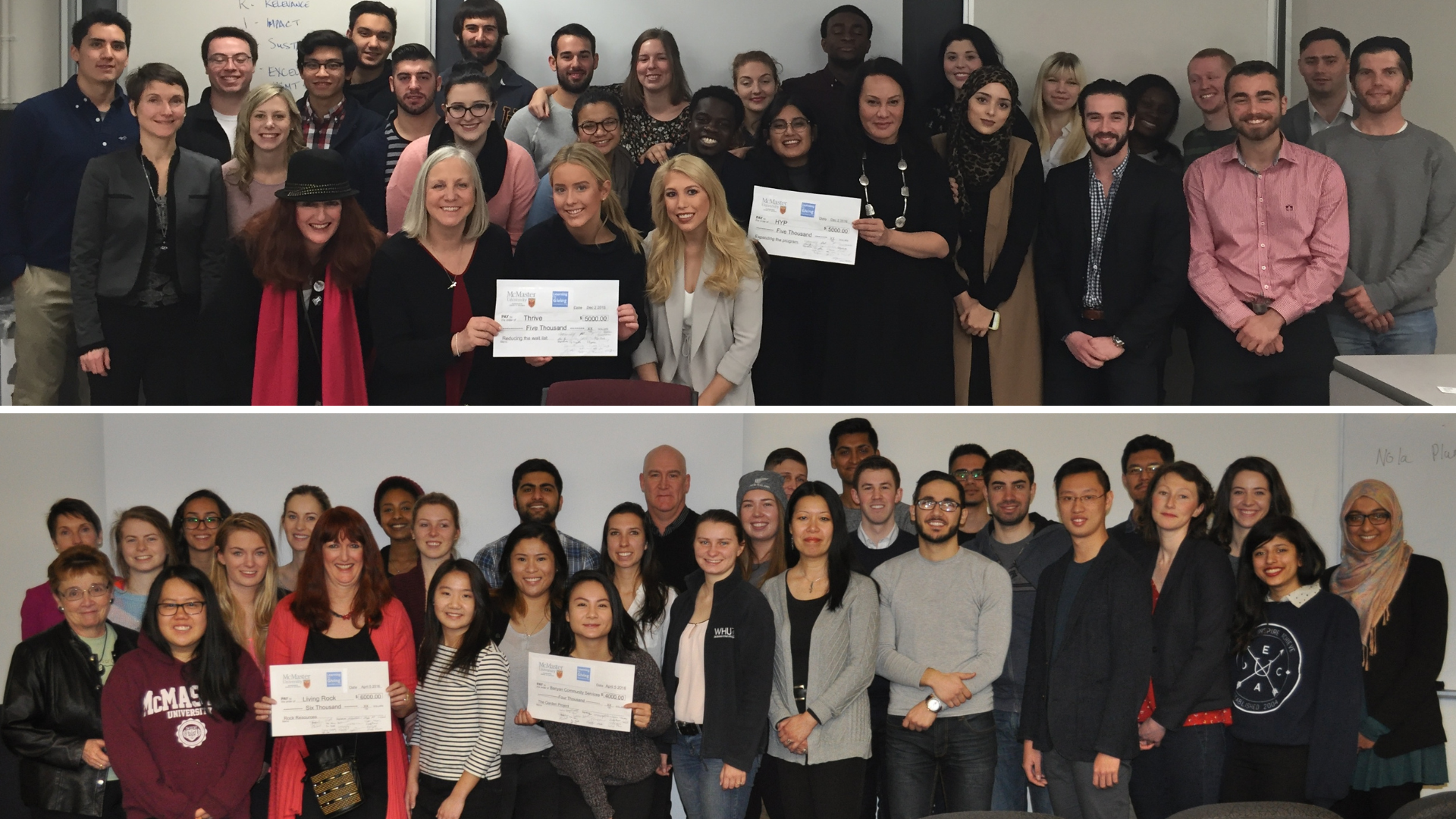
The Legacy of Strategic Philanthropy and Leadership
One of those students was Emily Rowe, who completed a Bachelor of Arts in Sociology Honours at McMaster in 2016. Looking back at her time in the course, Rowe says it’s imperative for students to learn about strategic philanthropy because it reminds them that while seeking career opportunities, they can also make meaningful contributions to their communities. More than that, the course catalyzed Rowe’s career direction.
“Adding the word ‘strategic’ in front of ‘philanthropy’ demonstrates one’s commitment to being critical and the value of quality over quantity,” she says. “This course taught us how important it is to be a part of the solution for the issue, not just passive supporters. It is what led me to dedicate my career to community development.”
As a result of their participation in the course, other students began to support non-profits as volunteers and by joining boards. Fergusson says learners often reflected on how Strategic Philanthropy and Leadership helped them better understand their place in the world and recognize the inequities around them.
“We always hoped the course would affect their entire lives,” Fergusson says, “and that there would be a lifelong understanding of the sector and that students would continue to support non-profits.”
Siklosi, meanwhile, sees the course’s legacy in fostering a genuine connection between students and their community. This manner of pedagogy, which focuses on learning through community engagement, also has the potential to impact the way academia interacts with its surrounding society, she says.
“You see the light come on, you see students making connections, and you see the learning really sinking in through this type of community engagement learning,” she says. “That’s when the critical thinking needed to impact and make change gets fostered. Students feel empowered. They’re like, ‘I’m not just a degree student at McMaster this year; I helped 12 Indigenous women find housing.’” “It’s meaningful work. So, I hope this course blazed a trail for other courses to come.”
Strategic Philanthropy’s Role in a Career Trajectory
Will Stephenson, who took the Strategic Philanthropy and Leadership course before graduating from the Integrated Business and Humanities Honours program in 2022, says the skills students gain by learning about strategic philanthropy are crucial to their careers.
“This type of course is crucial for students because it engages them in discussions about wicked problems — complex issues that lack straightforward answers or solutions that can be summarized in a multiple-choice question,” says Stephenson. “Addressing these problems requires nuanced thinking and a level of humility, which are valuable skills to develop early in one’s career.”

